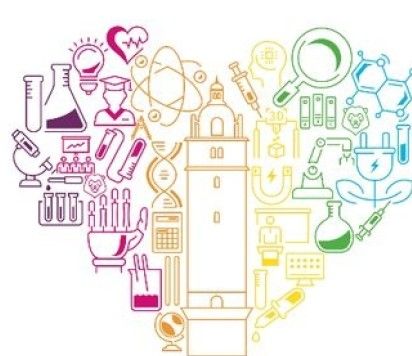Who is in the LGBTQ+ community?
LGBTQ+: Lesbian, gay, bi, trans, queer. The plus sign is there to represent other identities – anyone who isn't straight or cisgender belongs to the community.
A cisgender or cis person is someone whose gender identity is the same as the sex they were assigned at birth. We are all assigned a sex at birth based on attributes such as our chromosomes, hormones and external and internal anatomy.
Language is important. We want everyone to be on the same page when exploring our LGBTQ+ resources and comfortable with the language used, so we have defined the basic terms here. Stonewall has a glossary of terms which has more detail.
What is the difference between sexual orientation and gender identity?
Sexual orientation: A person’s attraction to other people, or lack thereof. Also referred to as 'sexuality'. Straight, gay, lesbian, bi, and asexual are examples of sexual orientations.
Gender identity: A person’s innate sense of their own gender, whether male, female or something else, which may or may not correspond to the sex assigned at birth.
What does each letter within LGBTQ+ mean?
- Lesbian: Refers to a woman who is attracted to women. Some non-binary people may also identify with this term.
- Gay: Refers to a man who is attracted to men. Also a generic term for lesbian and gay sexuality – some women define themselves as gay rather than lesbian. Some non-binary people may also identify with this term.
- Bi: An umbrella term for people who are attracted not only to one gender. Bisexual people are attracted to more than one gender, and pansexual people are attracted to all genders, or to people regardless of gender.
- Transgender or trans: An umbrella term to describe people whose gender is not the same as, or does not sit comfortably with, the sex they were assigned at birth. Non-binary falls under the trans umbrella, although not all non-binary people identify as trans. A non-binary person is one whose gender identity doesn’t sit comfortably with ‘man’ or ‘woman’. Non-binary identities are varied and can include people who identify with some aspects of binary identities, while others reject them entirely.
- Queer: A term used by those wanting to reject specific labels of sexual orientation and/or gender identity. It is sometimes used as an umbrella term to cover all those who are not straight or cis. Although some LGBT people view the word as a slur, it was reclaimed in the late 80s by the queer community who have embraced it. (Q can also stand for questioning, which is when people are exploring their own sexual orientation and/or gender identity.)
If you're an ally, you may wonder whether you should avoid saying the word "queer". It's not a problem for you to use it as an adjective to describe people who self-identify as queer, but bear in mind that not all LGBT people are comfortable with the word. Use it if you feel that you would be able to explain why you're using it, but always prioritise the voices of LGBTQ+ people in any conversation about them – listen if they tell you they would rather you not use the word.
You Make Imperial
Everything that makes you, you, also helps make Imperial.
Update your personal details on ICIS to help Imperial tailor its equality, diversity and inclusion activities and initiatives more effectively.
